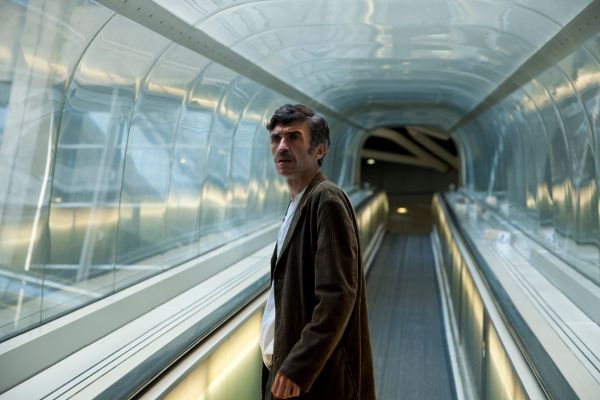Eye For Film >> Movies >> History's Future (2016) Film Review
History's Future
Reviewed by: Leo Bankersen

This is not the first film to start with a man who has lost his memory, but it is certainly one of the most unusual. It's not a thriller in which our unlucky hero has to frantically grapple for clues about what has happened to him or, even worse, what crime he may have committed. Although, maybe in a more philosophical sense...
The man (Mark O’Halloran) is the victim of a violent robbery, but for the rest of the story this incident is not really important. It's just a stroke of bad luck. A way to get things started, although it doesn't hurt to keep in mind the idea that a lot of things that we like to imbue with meaning, like history for example, are just, well, bad luck.

It's also a wonderful device to have us look in a new way at things we usually take for granted. To give us the feeling that we, just like the man without memory, have to find out from scratch how the world works, what history means, what our place and purpose is, what path we are travelling.
At first our hero is confused and rather helpless. He doesn't even recognise his own wife. Then he decides to cut through his powerlessness with a drastic action. He leaves his home and begins a strange meandering odyssey full of confrontational, tragicomic and uplifting encounters. In this way he tries to come to terms with the world. “The future is a tale told by an idiot,” is a quote he suddenly remembers. In another scene, after leaving an airport, he boards a taxi that brings him to deserted terrain. “Where do I go from here?” he asks. But the driver doesn't answer.
All this was put together by Dutch visual artist and documentary maker Fiona Tan, who wrote the script together with British film critic Jonathan Romney. It's a combination of very different talents that works out in a very original way. While in many cases the lack of a final, logical solution would be a weakness, in this case it's one of the strong points. The road trip of the man searching for meaning unfolds as an epic poem in which the fiction alternates with documentary inserts and strange, dreamlike hallucinations. We have glimpses of real riots that happened in recent years in the cities of Europe. We have short interviews with ordinary people about their hopes and longings. We have lots of metaphors, like a blind lottery seller (Denis Lavant). And we have wonderful, mysterious visions, such as those of people floating on the waves in giant bubbles.
Strange and unreal as the man's road trip might seem - sometimes he's a tramp, at other moments he's dressed like a businessman, as if it's a collage of the different directions his travels through life might take - the people themselves are always very real, thanks to a bunch of wonderful actors. This makes those we encounter in this fantasy easy to connect with, such as in the scene where he meets a woman who might once have been his lover. Truly moving moments like these are one of the reasons the whole thing doesn't fall apart as some kind of far fetched, idiosyncratic enterprise. Ultimately it's about the real world, it's about us.
It's disorienting with a purpose. Not the purpose of discovering some cleverly hidden meaning, but an invitation to try to look at things in a fresh way, an invitation to philosophise about possibilities and choices, about identity, history and our place in the world. Yes, it's complicated, it's weird, but Tan and Romney also succeed in giving it a compelling flow. Reality and imagination, symbolism and dreams of possible futures ultimately fit together very well. I wish my dreams were like this film.
Reviewed on: 15 Jun 2016















